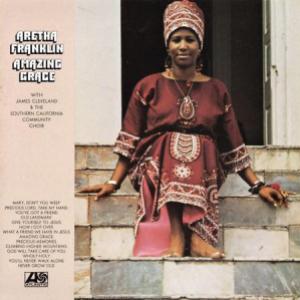 Aretha Franklin represents something of a quandary for me. She was, without question, one of the greatest singers of the 20th century — never mind calling her the “Queen of Soul,” which diminishes her universality. Her 2016 show at the Blue Hills Bank Pavilion was among the great concerts I’ve ever had the honor of attending.
Aretha Franklin represents something of a quandary for me. She was, without question, one of the greatest singers of the 20th century — never mind calling her the “Queen of Soul,” which diminishes her universality. Her 2016 show at the Blue Hills Bank Pavilion was among the great concerts I’ve ever had the honor of attending.
But albums? For me, Aretha wasn’t about albums so much as a string of incredible singles that she recorded in the late 1960s and early ’70s. I could have chosen “Aretha’s Gold,” her 1969 compilation that includes hits like “Chain of Fools,” “Think” and, of course, “Respect.” (Has a cover ever surpassed the original as thoroughly as Aretha’s “Respect” exceeds Otis Redding’s?)
A few years ago, though, I heard “Amazing Grace” for the first time. Released in 1972, it became Franklin’s biggest hit as well as the top-selling gospel album of all time. Listening is a challenge for someone like me, a mostly secular aging white guy who likes a strong beat. “Amazing Grace” consists mainly of Aretha’s voice soaring above the Southern California Community Choir, with a band led by the Rev. James Cleveland on piano.
My appreciation of “Amazing Grace” deepened after we saw the 2019 documentary of the same name. It mostly tracks with the album, but to see her perform takes it to an entirely different level and offers a deeper perspective on the material. There’s more of her father, the Rev. C.L. Cleveland, than there is on the album as well. And look! There’s Mick Jagger!
“Amazing Grace” is one of those aspirational albums that I keep going back to. I hear something new every time I play it. And if I keep at it long enough, I might finally get it.
Talk about this post on Facebook.

